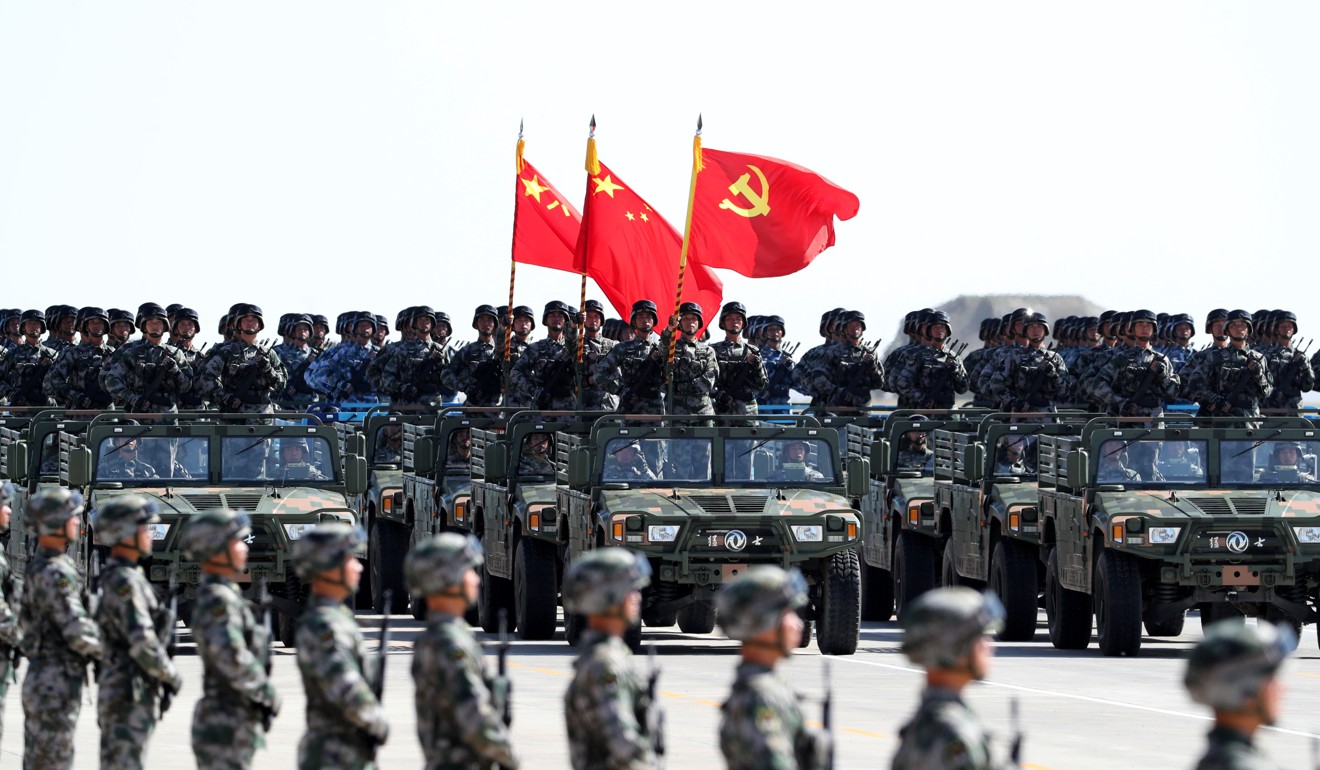
Worries over fitness levels as more young Chinese fail military exams
Over 55 per cent of army hopefuls in one Hubei city did not make the cut in recent weeks – mainly due to vision and weight problems, PLA newspaper says
A growing number of young army hopefuls in central China are not making the cut because they fail the physical exam, raising concerns about the national fitness level, according to the military’s official mouthpiece.
More than 55 per cent of the 1,233 youngsters who tried out for the army in one unnamed city in Hubei province failed the test in recent weeks – mainly because of vision and weight issues, the People’s Liberation Army Daily reported on Wednesday.
But that was better than in the Jianghan Plain, which spans most of central and southern Hubei, where the pass rate was 25.6 per cent last year – down from 30.8 per cent in 2011, the report said.
Li Xianggui, chief director of a hospital in Jingzhou, told the newspaper he had seen a significant decline in fitness levels in the 20 years he had been involved in the military’s physical exams.
Although living standards were rising, many young people had unhealthy diets and more were overweight, he said.

China now has the largest overweight population in the world, ahead of the United States, according to a study published in The Lancet medical journal last year.
Some 43 million men and 46 million women were considered overweight – or 10.8 per cent of men and 14.9 per cent of women in the country, which has a population of 1.4 billion.
It’s a problem that has not gone unnoticed by the PLA’s recruiters.
“In general, the physical condition of young people wanting to sign up is not ideal, but we can’t lower our standards when it comes to finding troops,” Gao Jindong, a military division commander in Jingzhou, was quoted as saying.
Although more young people had applied in the past two years, many of them were unable to pass the physical exams, according to Liu Deming, a military political commissar in the city.
“Some of the physical problems we’re seeing in applicants can be treated, but some can’t be dealt with in the short term,” Liu said.
The problem is so widespread that the PLA Daily put the word out on social media last week, offering 10 reasons why many would-be recruits failed the fitness test – including too many video games, not enough exercise, and too much masturbation.
Xu Wenlong did manage to pass the exam last week and is one of the first batch of 211 university graduates to enlist this year in the Hubei city highlighted by the newspaper.
He was able to sign up after he had free surgery to correct his near-sightedness, arranged by the Ministry of Human Resources and Social Security and paid for by a local hospital.
But others, although enthusiastic to join the army, are not in good enough shape. Lou Bowen has been through the physical exam twice but was rejected both times for having high levels of alanine aminotransferase – an enzyme made by the liver’s cells that plays a key role in metabolism.
Other young recruits enlist after passing the exam only to be later discharged because “hidden” conditions emerge during the rigorous training process.
In the Jianghan Plain region, some 50 new recruits were discharged in 2016 for this reason – up from 40 the year before.
It has become such a problem that a pre-service training period has been introduced in the region this year, with 35 new recruits who passed the fitness exam discharged because of physical problems that emerged. A further 18 recruits could not adapt to military life and left.
“Military discharges are a major problem that has plagued us for many years. Introducing pre-service training is a responsible move for both the young people involved and for the long-term status of the troops,” Lu Shouxiang, a local military political commissar, told the newspaper. “We have to effectively select every brick for the Great Wall.”

